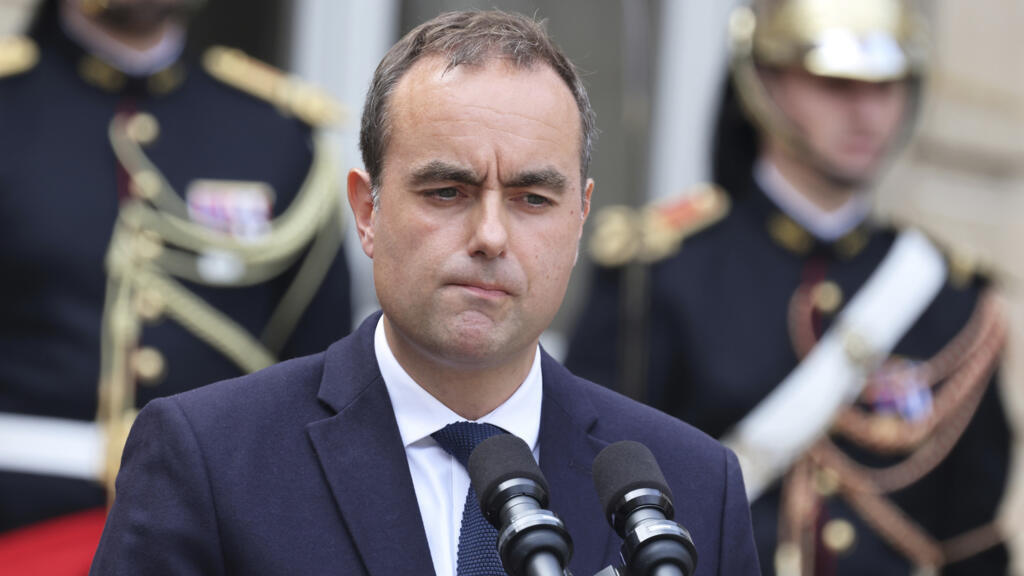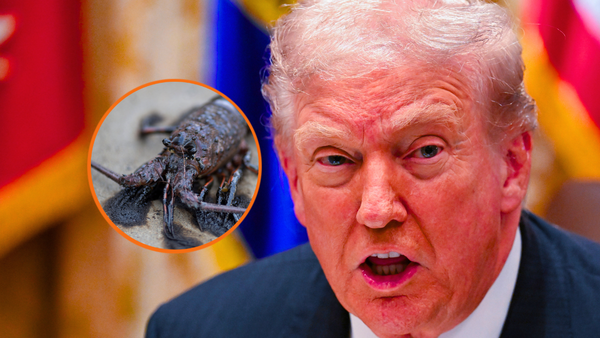
French Prime Minister Sébastian Lecornu on Friday vowed to forgo an infamous article of the constitution that would have allowed him to steamroller a budget bill through parliament without a vote – but left him vulnerable to a vote of no confidence. The move means MPs must agree a compromise before time runs out to pass a budget at the end of the year.
Lecornu said he would not resort to a special clause in Article 49.3 of the French constitution – invoked by several of his recent predecessors – because it "essentially allows the government to halt debates".
"I am forgoing it in order to engage the government's responsibility and for the government to write the final version," he told reporters.
"It's a useful tool. But in a functioning parliament, one that was renewed around a year ago and reflects the French people and their divisions, you cannot force your way through or coerce the opposition."
Race to set draft budget
Lecornu is in crunch talks with leaders of several parties in France's deadlocked parliament, which has been divided into three main blocs since snap elections last year.
He is in a race against time to present a draft budget for legislators to discuss and approve before the end of the year.
His predecessor, François Bayrou, left office after he failed to receive backing for his 2026 budget that would have required nearly 44 billion euros in savings – largely through cuts to public spending and scrapping two public holidays.
"Giving up Article 49.3 must not lead us to give up on France having a budget," said Lecornu before meetings at his Paris office with leaders of the National Rally, the Socialist Party, the Ecologists and the French Communist Party.
Who is 'political animal' Sébastien Lecornu, France's latest prime minister?
Lecornu, appointed on 9 September by President Emmanuel Macron, is forced to talk to parties from across the political spectrum after Macron's decision to hold snap parliamentary elections in July 2024 backfired.
Parliament was left in a three-way split between Macron's centrist bloc, the far-right National Rally and a left-wing coalition.
Bayrou joined Gabriel Attal and Michel Barnier as the premiers who failed to unite the disparate factions on a response to France's debt crisis.
Public debt has climbed to 113.9 percent of GDP, due in part to bailing out the economy during the Covid pandemic in 2020 and 2021.
France's debt: how did we get here, and how dangerous is it?
Wealth tax mooted
Lecornu will need either the right-wing Republicans or the left-wing Socialists to abstain or support him.
As part of the horse trading, the Republicans say they want a third of the posts in the cabinet that Lecornu is set to announce. The Socialists are seeking a wealth tax alongside or instead of austerity measures.
In a bid to break the impasse, Lecornu has proposed creating a form of wealth tax that would exclude business owners' professional assets, anonymous sources told Reuters news agency on Friday, without providing details.
The 39-year-old PM is aware that not passing a budget will tarnish France's credibility.
On 12 September, credit rating agency Fitch downgraded France's sovereign credit score to the country's lowest level on record.
The move to A+ stripped the euro zone's second-largest economy of its AA- status to underline growing investor concerns over its ability to rein in the highest budget deficit in the euro zone.
Failure to produce a budget would leave the government falling back on a stop-gap rollover that lets it spend only at last year's levels.
Wait and see
Lecornu's predecessors were heavily criticised for their reliance on Article 49.3 to pass controversial reforms.
His political opponents cautiously welcomed his decision not to invoke it, while stressing they needed a clearer picture of the new prime minister's policies.
"Not using 49.3 seems to me more respectful of democracy than what has been done in previous years," said Marine Le Pen, president of the National Rally parliamentary group, after meeting Lecornu.
While she added that she didn't see the new premier breaking with the status quo, Le Pen said she would wait and see what was in his policy speech.
Olivier Faure, first secretary of the PS, emerged from a two-hour meeting with Lecornu calling the budget proposals "very insufficient and in many respects alarming", but welcomed the decision to allow parliament to debate the bill.
He said his party wanted to know if Lecornu was willing to meet its key demands, such as a vote in parliament to change pension reforms that were adopted via 49.3.
"We don't just want procedural steps, we want the French people's lives to change," Faure said.
France's article 49.3 a handy constitutional tool to bypass parliament
Introduced in 1958 with the Fifth Republic, Article 49.3 was designed to overcome the shortcomings of the previous republic – notably political deadlock due to rapid changes of government.
In exchange for bypassing a vote on legislation, it leaves the prime minister exposed to a no-confidence vote that can bring down the government.
Since 2008, 49.3 can be activated for only one bill per parliamentary session – outside of the state and social security budgets, for which there are no limitations.
(with newswires)







